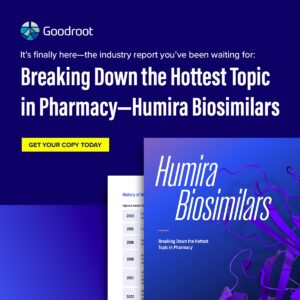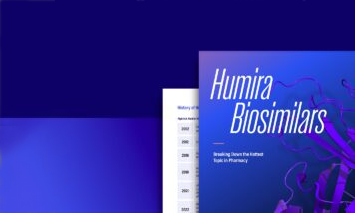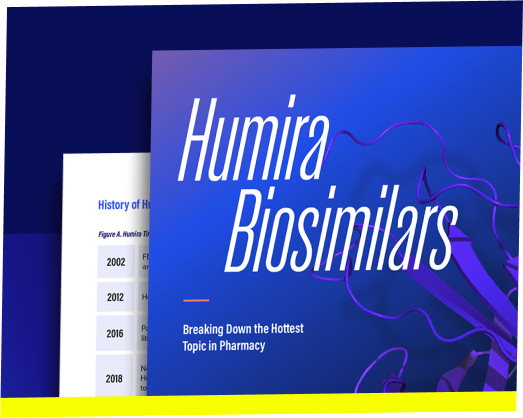 COLLINSVILLE, Conn. — A detailed analysis of the dozen biosimilars for Humira set to enter the market in 2023 found that the downward pressure on drug cost will be minimal, at least initially. The clinical team from Goodroot and its affiliate companies — including RemedyOne, AlignRx, and Nuwae — published a whitepaper that includes projections showing Humira biosimilars gaining up to 5 percent market share in the first year, and reaching a maximum of 20-25 percent by 2026.
COLLINSVILLE, Conn. — A detailed analysis of the dozen biosimilars for Humira set to enter the market in 2023 found that the downward pressure on drug cost will be minimal, at least initially. The clinical team from Goodroot and its affiliate companies — including RemedyOne, AlignRx, and Nuwae — published a whitepaper that includes projections showing Humira biosimilars gaining up to 5 percent market share in the first year, and reaching a maximum of 20-25 percent by 2026.
“With drug costs soaring and medical debt mounting, there is a lot of excitement around the possibility for biosimilars to lower costs on a particularly expensive category of drugs,” says Michael Waterbury, CEO of Goodroot, a community of companies committed to increasing access and affordability in healthcare. “Our team of highly experienced pharmacists and pharmacy trade experts looked at this from every angle, and it appears very unlikely that biosimilars will drive down costs in the near future. For savings, payers and patients will have to leverage other avenues, of which there are many.”
Humira, produced by AbbVie for a variety of conditions including rheumatoid arthritis, is the highest-grossing drug of all time with $21 billion in annual global sales as of 2021. The cost to a patient and their insurer for the drug is often more than $80,000 annually.
Since Humira is a biologic drug produced from living organisms, a generic version cannot be developed. The white paper explains: “Biosimilars are not exact copies of their reference product, however they have the same clinical characteristics as their biologic innovator product.” AbbVie’s patent expired in 2016, but legal maneuvering delayed biosimilars from reaching the market until agreements were struck to allow the sale of Humira biosimilars in 2023.
“Though they are finally reaching the market, there are several obstacles to Humira biosimilars lowering healthcare costs,” explains Nuwae president Ralph Pisano, RPh. “First, given the challenging nature of conditions Humira treats, such as Crohn’s disease, doctors will be reluctant to switch patients who have achieved stability on Humira to another medication, even if it offers cost savings.”
“Second, AbbVie, by our estimates, likely paid over $5 billion in rebates to pharmacy benefit managers (PBMs) in 2021. By increasing their rebates just 10 percent, AbbVie can match the net cost of biosimilar manufacturers, who also have to pay AbbVie royalties that effectively create a floor to how far they can lower prices. Finally, Abbvie’s rebate agreements with PBMs and plans flat out stipulate that they cannot provide an advantage, such as lower out-of-pocket costs, for biosimilars on the patient’s benefit.”
The white paper offers recommendations for health plans and employer groups, biosimilar manufacturers, PBMs, patients, brokers and third-party administrators on how to position themselves to lower healthcare costs as the Humira biosimilar market evolves. It also offers suggestions on steps more likely to produce cost savings in the short term.
Download a copy of the whitepaper
About Goodroot
Goodroot is an interconnected community of companies making every interaction between human and health accessible, affordable and seamless. Goodroot’s community, which includes AlignRx, Breez, CoeoRx, Emry Health, Penstock, RemedyOne, Sola, and Nuwae — delivers transformative tech and proactive services that enable clients, partners and patients to reap more value from the money spent on health. To date, Goodroot companies have removed over $1 billion in wasteful and unnecessary spending from the healthcare industry. Goodroot is the third-ranking healthcare company on the 2023 Real Leaders list of Top Impact Companies. goodrootinc.com







